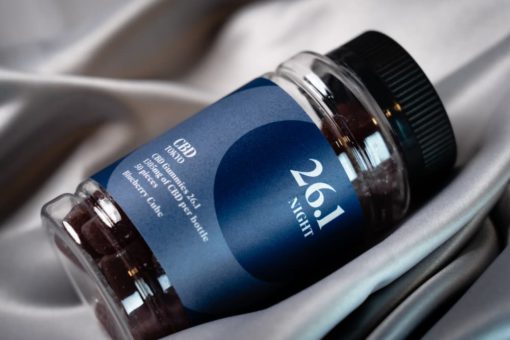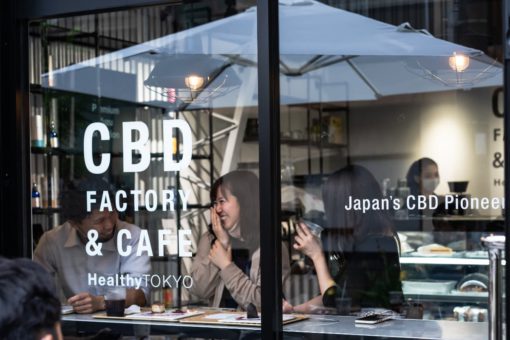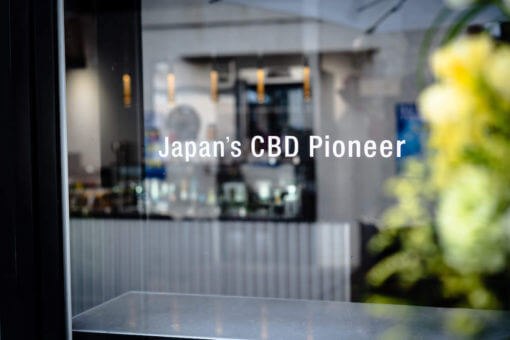CBD Articles, CBD in Japan
What is the Difference Between THC and CBD?
Table of contents
In the ever-evolving landscape of wellness and alternative medicine, two compounds have risen to the forefront: cannabidiol (CBD) and delta-9-tetrahydrocannabinol (THC). Both of these compounds were first isolated in the 1940s from cannabis plants.[1],[2] Since then, our understanding of their characteristics and medical properties has evolved significantly. The cannabis plant contains a thick substance that contains cannabinoids. So far, roughly 113 compounds have been isolated from the cannabis plant including CBD and THC. As the medicinal and therapeutic properties of cannabis-derived compounds have become more evident, their use has been mainstreamed in many countries. Although both of these compounds are important constituents of marijuana and hemp, they have distinct properties and effects. Despite the widespread education about their roles, still, some confusion may still persist between these two compounds. In this article, we will try to unravel the differences between THC and CBD and clear up common misconceptions.
What is CBD?
CBD, short for cannabidiol, is one of the many compounds discovered in the cannabis plant. Unlike its counterpart, THC, CBD is non-psychoactive, meaning it doesn’t produce the sensation of being “high.” Celebrated for its therapeutic properties, CBD has captured global attention for its potential to alleviate a myriad of ailments without the intoxicating effects often associated with cannabis.
Its interaction with the human endocannabinoid system, particularly with certain receptors in the brain, has led to its widespread usage. Many users turn to CBD for potential benefits ranging from stress relief to pain management, and it’s available in various forms, such as oils, edibles, and topicals. The compound’s non-intoxicating nature, coupled with its potential therapeutic benefits, has made it a popular choice for many seeking natural remedies.
What is THC
THC, or tetrahydrocannabinol, is a distinct compound in the cannabis plant, recognized for its psychoactive nature that induces the sensation of euphoria or “high.” This compound mimics the effects of natural cannabinoid chemicals in our bodies. With high concentrations in brain areas associated with cognition, memory, coordination, and pleasure, THC connects with these receptors, influencing one’s memory, focus, movement, mood, and even perception of time and senses.
Many who consume THC describe feelings of relaxation and tranquility, apart from the euphoric sensation. Engaging in activities like driving or operating machinery while affected by THC poses significant risks. While THC boasts potential therapeutic benefits, including alleviating symptoms of PTSD, epilepsy, depression, and eating disorders, prolonged consumption may lead to dependency due to increased tolerance. Currently, it is illegal to sell or possess cannabis (containing THC) in Japan. However, the Japanese Government is considering allowing THC in pharmaceutical products in 2023.
What is CBD Oil
Derived from the Cannabis sativa plant, which has been valued for its medicinal qualities for millennia, cannabis oil undergoes a process known as “chemical extraction.” This technique leverages solvents to glean cannabinoids, along with other beneficial elements like terpenes and flavonoids, which are then infused into carriers such as hemp oil or MCT oil.
Although various methods exist to extract this oil, CO2 extraction stands out as the preferred approach. Its rising popularity is credited to its ability to yield products that are both safe and potent, devoid of chlorophyll, waxes, or any harmful residues that alternative methods might introduce.
Does CBD Oil Have THC in It?
The answer to this question is a bit complicated. The answer is both ‘yes’ and ‘no’ as it depends upon the form of CBD that you are using. There are three main types of CBD composition i.e., full-spectrum CBD, broad-spectrum CBD, and CBD isolate. Full-spectrum CBD contains multiple naturally occurring compounds including terpenes and trace amounts of THC. Broad-spectrum CBD, on the other hand, is entirely free of THC but can contain other compounds. The purest form of CBD is CBD isolate which is entirely free of any other cannabinoids. Even in full spectrum form, the presence of THC is minimal which is legally allowed at 0.3% in America, but the presence of THC is illegal in Japan. At the 0.3% concentration level, THC does not produce psychoactive effects which are responsible for the ‘high’ effect attributed to THC.
Is CBD Oil Considered an Opioid?
No, CBD oil is not an opioid. Opioids are a class of potent pain-relieving drugs that include substances like morphine and fentanyl. On the other hand, CBD interacts with the body’s endocannabinoid system, which is involved in controlling a number of physiological functions including pain, mood, and hunger. Apart from this, CBD does not cause addiction among users which is a hallmark of opioids.
Is CBD Considered a Drug?
In Japan, CBD is classified as food or cosmetics rather than being labeled as a pharma or narcotic product. However, CBD is considered a drug, but not in the traditional sense. The term ‘drug’ often carries negative connotations. However, CBD is different. It is a natural compound that people use due to its believed therapeutic effects. The United States Food and Drug Administration (FDA) has also approved a CBD-based drug called Epidiolex.[3] It is recommended for the treatment of epilepsy.
Is CBD the Same as Marijuana?
No, CBD is not the same as marijuana. CBD is a compound found in marijuana. Usually, there are two main sources of CBD including Hemp and Marijuana. They are basically different names of the same plant – cannabis belonging to the Cannabaceae family. Industrial hemp is referred to as the cannabis plant that has less than 0.3% of THC whereas marijuana contains more than 0.3% of THC. In Japan, the THC is further remediated to bring it to 0.0% THC. Generally, CBD products are extracted from hemp plants rather than marijuana.
Conclusion: Navigating the Green Maze
In the quest for wellness, understanding the difference between THC and CBD is paramount. While they both originate from the same plant, they impart different effects. So, whether you are seeking relief or simply curious about exploring alternative avenues, remember that CBD and THC are two different cannabis-derived compounds.
[1] Structure of Cannabidiol, a Product Isolated from the Marihuana Extract of Minnesota Wild Hemp. I pubs.acs.org
[2] Global Trends in Cannabis and Cannabidiol Research from the Year 1940 to 2019 www.ingentaconnect.com
[3] Epidiolex as adjunct therapy for treatment of refractory epilepsy: a comprehensive review with a focus on adverse effects ncbi.nlm.nih.gov








